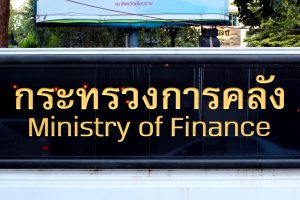In 2023, a newly elected government in Thailand made big promises to deliver more direct benefits to the people. The signature program was a digital wallet scheme, whereby most adults in Thailand would receive a one-time payment of 10,000 baht ($288). The total cost of the program was estimated to be somewhere in the range of $14 billion.
Srettha Thavisin, the prime minister who led the charge on the digital wallet, is no longer in office and in the short time since the 2023 elections Thai politics have not exactly been a paragon of stability. So the question is, does the government still plan to spend big on demand-side stimulus like the digital wallet? With Thailand finalizing its budget for the 2025 fiscal year, we now know that the answer is yes.
As I explained here, it was never all that clear how Thailand planned to finance a $14 billion cash payment in a single year. The government ran fiscal deficits in 2022 and 2023 of around $17 billion, so nearly doubling that with an additional $14 billion at a time of low economic growth and elevated interest rates didn’t make a lot of sense.
By April, even before the political shake-up, the government was already reconciling itself to this fiscal reality, putting forth a plan to divide up the digital wallet payments so they could spread the cost out over two years. Even then, there was an idea to draw only about $9 billion from the budget, and finance the remaining roughly $5 billion with a loan from a state-owned rural development bank. The plan has since gone through numerous permutations, being modified seemingly on the fly as new ideas and leadership enter and exit the picture.
What we know for sure is that the government has moved forward with the first phase, distributing roughly 145 billion baht ($4.2 billion) in September of this year, and this came from the 2024 fiscal budget. As a result, the deficit for fiscal year 2024 spiked to around $18.3 billion. It’s not as high as it was during the COVID-19 pandemic, but it’s going up at a time when many other countries in the region are looking to consolidate their balance sheets and bring deficits down.
With plans to disburse the second phase of the digital wallet in 2025, it is likely the deficit will continue rising next year. The 2025 budget has been set at 3.75 trillion baht ($109 billion), a nearly 15 percent increase from 2024 which was already high as it contained additional spending for the digital wallet. It appears the Thai government is committed to spending big right now, no matter who is in charge. And that spending is likely going to have to be paid for with more borrowing.
A rising deficit is not, in and of itself, a problem. But it can be a problem if the deficit rises faster than the rate of economic growth, or if the cost of new debt is greater than the economic benefits it is supposed to create. And the problem for Thailand right now is that economic growth is slow. The tourism sector is recovering, but global demand for exports remains soft and this is a big problem for an export-oriented economy like Thailand’s.
As a result, public debt as a percentage of GDP has risen sharply. Back in May 2021, Thailand’s debt-to-GDP ratio was 55 percent. According to the latest data from the Ministry of Finance, by August 2024, debt as a percentage of GDP had ballooned to 64 percent. This is what you would expect if the government is borrowing to finance big spending programs like the digital wallet at a time of slow economic growth. And this ratio is likely to rise next year as Thailand pumps even more money into the economy, including additional phases of the digital wallet.
It’s too soon to say whether or how much the digital wallet has actually boosted economic growth. But what is clear is that Thailand is in a tricky position of running fiscal deficits at a time of slow economic growth, and its primary engine of economic activity, exports, is an uncertain bet given that protectionism and economic nationalism are on the rise.
































